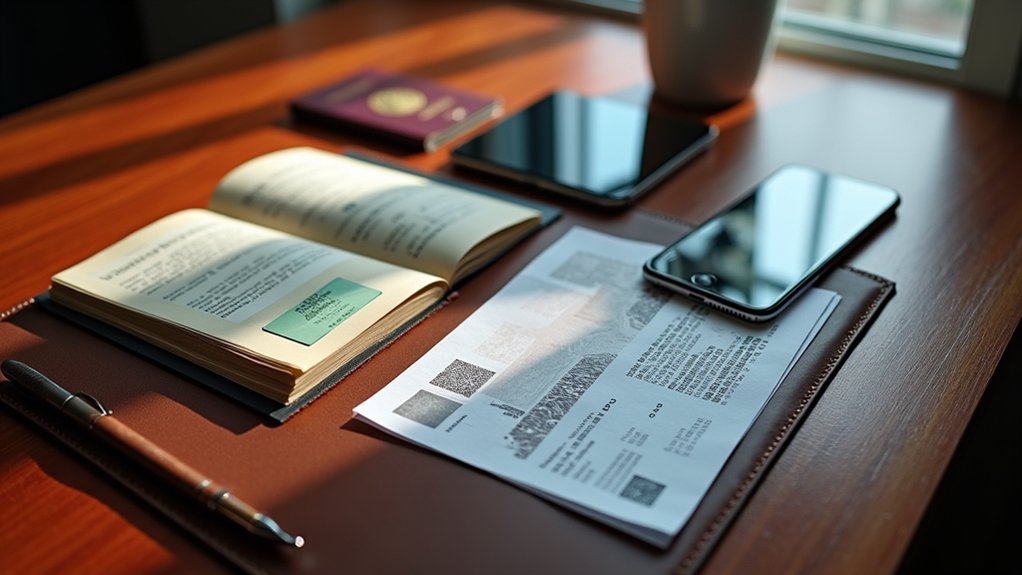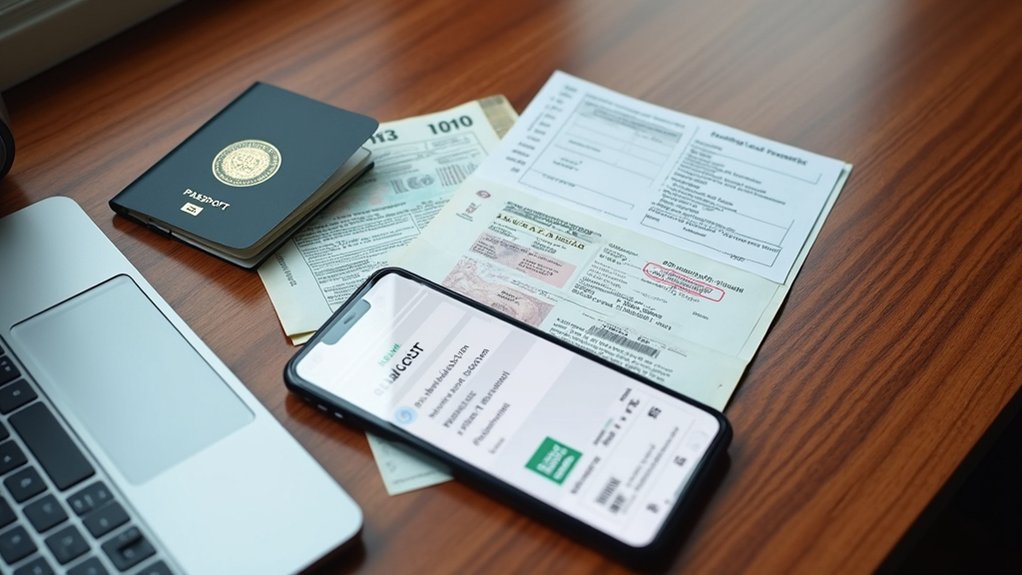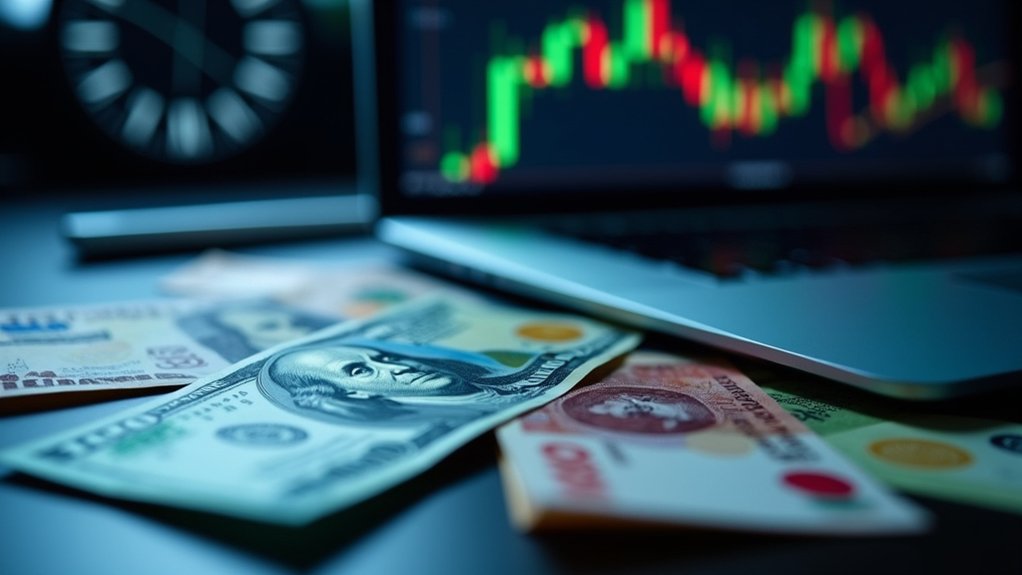KYC—Know Your Customer—is the identity verification gauntlet every forex trader must clear before placing a single trade with a regulated broker. It's not optional. Brokers collect personal data, verify documents against databases, assess risk profiles, and monitor accounts to comply with anti-money laundering laws across African jurisdictions. Skip it and accounts stay frozen. Regulators enforce this framework with fines and license revocations because the financial system needs gatekeepers, not open doors. The process varies by country, involves Enhanced Due Diligence for high-risk clients, and below unpacks how technology streamlines what remains a necessary friction point.

Forex KYC Explained
In the world of forex trading across Africa, opening a brokerage account isn't as simple as signing up for social media. Brokers want to know who you are, where your money comes from, and whether you're legitimate. This is KYC—Know Your Customer—and it's not optional. It's the law.
KYC in African forex isn't a suggestion—it's mandatory law ensuring brokers verify identity, funds, and legitimacy before you trade.
KYC refers to procedures forex brokers use to verify identity and assess client risk. The goal? Prevent money laundering, fraud, and terrorist financing. Brokers must guarantee only legitimate clients access their platforms, blocking minors and criminals in the process. This isn't some feel-good corporate policy. It's a central component of Anti-Money Laundering and Counter-Terrorism Financing frameworks that regulators enforce globally, including across African markets like Nigeria, Kenya, South Africa, Egypt, and Ghana.
The process starts with Customer Identification. Brokers collect your name, address, ID number, date of birth—the basics. Then comes Customer Due Diligence, where they investigate your background, source of funds, and why you want to trade. Next is Verification, cross-checking your documents against databases to confirm authenticity. Risk Profiling follows, assigning you a risk level—low, medium, or high—based on your data and behavior. Finally, there's Ongoing Monitoring, where brokers continuously review your activity and update information as needed. It never really ends.
KYC is legally required in most jurisdictions, but specifics vary wildly. A broker regulated in Mauritius faces different rules than one operating in Tanzania or Morocco. Penalties for non-compliance include heavy fines and loss of operating licenses. Some regions demand Enhanced Due Diligence for high-risk clients—think politically exposed persons or traders from high-risk countries. Brokers must keep KYC records for audits and regulatory inspections, which means your data lives in their system for years. Effective compliance requires a risk-based approach that allocates resources according to the actual threat level of each client and transaction. These compliance requirements are shaped by international standards and local regulatory authorities that oversee forex trading activities in each jurisdiction. The Financial Services Commission of Mauritius serves as one such regulatory authority overseeing forex brokers operating within its jurisdiction. Proper regulatory oversight ensures brokers follow standardized procedures that protect both the financial system and individual traders from exploitation.
Technology has changed the game. Automated KYC solutions streamline identity verification and document checks. Digital onboarding lets African traders submit documents remotely, no branch visits required. AI and machine learning help with risk scoring and detecting suspicious patterns. Regular software updates keep brokers compliant with evolving regulations and global watchlists. Integration with third-party databases enhances accuracy. Brokers also screen clients against sanctions and watch lists to flag potential risks before account approval. Robust KYC procedures also mitigate settlement risk by ensuring counterparties in forex transactions are verified and financially sound before trades execute across different time zones.
But KYC isn't frictionless. Some traders hesitate to share personal data, delaying or blocking account opening. Varying international regulations complicate compliance for brokers serving multiple African countries. Underage traders try to bypass KYC, creating legal and reputational risks. Maintaining robust KYC systems costs money—serious money—and false positives can frustrate legitimate traders. Noncompliance can trigger civil penalties, including massive financial fines that destroy smaller brokerage operations. Perpetual KYC has emerged as a critical practice, with brokers conducting continuous risk assessments and periodic automated re-checks throughout the customer lifecycle rather than relying on one-time verification. Investment-type scams caused losses over $115 million in H1 2023, representing nearly 60% of total fraud losses for that period. For African forex traders navigating brokers in Lagos, Nairobi, Johannesburg, or Accra, KYC is the gatekeeper. Annoying, necessary, unavoidable.
Common Questions
Can I Trade Forex in Nigeria Without Completing KYC Verification?
Trading forex in Nigeria without KYC? Technically possible on shady, unregulated platforms. But here's the reality: reputable brokers—local or international—demand KYC before account activation. Period.
The Central Bank of Nigeria's 2025 FX Code tightened the screws on compliance. Skip KYC and traders risk frozen withdrawals, account shutdowns, zero legal protection when things go south. Plus, it violates anti-money laundering laws. So yes, some platforms might let you slide. Smart? Absolutely not.
Do South African Brokers Accept Utility Bills in Another Family Member's Name?
No. South African brokers won't accept utility bills in another family member's name for KYC verification. The Financial Intelligence Centre Act demands strict proof of address in the trader's own name. Period.
Brokers need bank statements, lease agreements, or utility bills showing the applicant's name to comply with AML regulations. Using someone else's documents? That's a fast track to account rejection.
The FSCA doesn't mess around with compliance, and neither do licensed brokers operating in South Africa.
What Happens if My Kenyan ID Document Expires During Account Verification?
Most Kenyan brokers will hit pause on the verification process. Hard stop. The account gets restricted—no trading, no withdrawals, nothing—until a valid, renewed ID is uploaded.
Expired documents don't meet KYC standards under Kenyan law, so platforms have zero choice but to freeze things. The trader needs to renew through the National Registration Bureau, then resubmit.
Delays can stretch for days or weeks, depending on how fast the paperwork moves. Compliance doesn't wait.
Are KYC Requirements Different for Islamic Forex Accounts in North Africa?
No. KYC requirements in North Africa don't care whether a Forex account is Islamic or conventional—same rules apply to both.
Morocco, Egypt, Algeria, Tunisia, and Libya all follow FATF standards for identity verification and compliance, and “swap-free” is just a product feature, not a regulatory category.
Same documents needed: ID, proof of address, the whole routine.
Religion doesn't reduce verification burdens. Islamic accounts avoid riba, sure, but that's product design, not a KYC exemption.
Can I Use a Scanned Passport Copy From an Internet Cafe?
Technically yes, but it's risky as hell.
The scan itself might work if it's clear, color, high-res, and shows all edges of the passport.
Problem is, internet cafés are security nightmares. Files stay on drives, networks aren't secure, and brokers can reject documents from dodgy sources.
Many African traders do it out of necessity—no scanner at home—but compliance teams aren't fans. Use your own device if possible.










